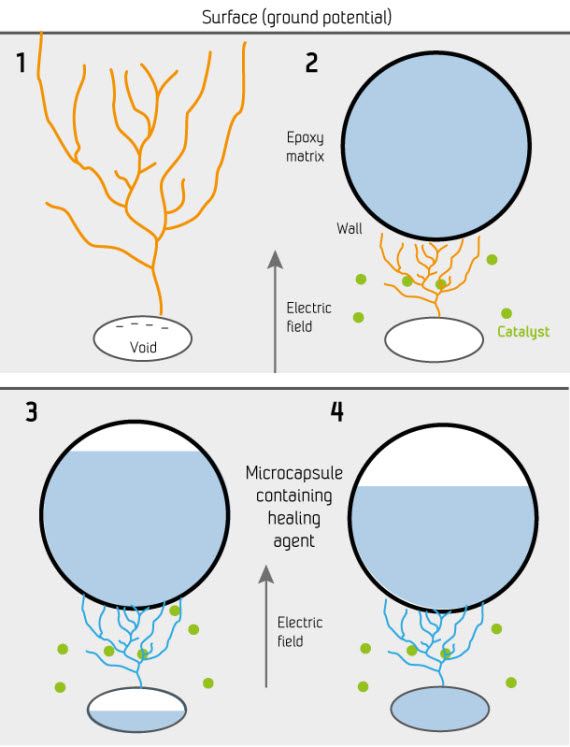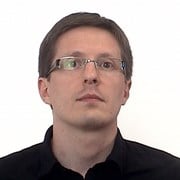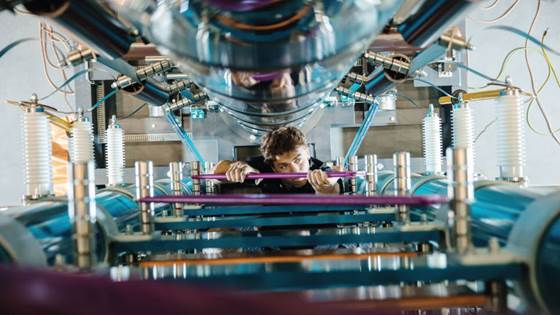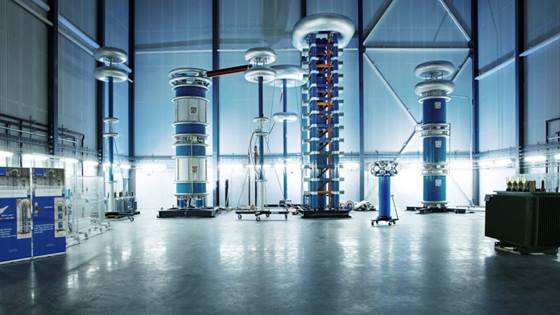Applications include offshore wind farms, subsea grid and equipment located in the Arctic.
Failure of such apparatuses may results in negative environmental impact, exacerbated by extremely expensive and time consuming maintenance and repair. SINTEF conducts R&D needed to adapt and implement self-healing technology as a basis for advanced electrical insulation materials by using the early stages of electrical failure to trigger the self-healing.
Our services:
SINTEF has extensive experience in testing of insulation systems , and can use this expertise to test and develop new self-healing insulation materials. An important requirement is knowledge and experience in a wide range of disciplines from polymer chemistry to electric power technology. In cooperation with industry we can adapt this technology to specific applications.
Principle:

Figure: Concept of self-healing composites in high voltage insulation systems.
- An electrical tree, i.e.; a hollow tubule or channel developing in the polymer matrix as a result of electrical degradation that bridges the insulation between a high and low potential will in most cases result in a rapid electrical breakdown.
- A micro-encapsulated healing agent is embedded in the thermoset matrix containing a distributed catalyst capable of polymerizing the healing agent. The heat and mechanical forces active at the tips of the electrical tree branches will likely be (more than) sufficient to crack the capsule and release the healing agent.
- The monomer flows into and fills the electrical tree channels. Inside the channels, in contact with the catalyst, the monomer starts to polymerize.
- Polymerization and filling of the void and the channels of the electrical trees.
Tasks:
- Synthesis and characterization of the polymer microcapsules
- Research on the dispersion and compatibility of the microcapsules within their surroundings.
- Research on electrical degradation and breakdown of the insulation system
- Research on dielectric properties of capsule materials where the influence on permittivity, thickness of the walls but also drained capsules is studied
- Research on healing efficiency
- Numerical modeling on how the electric field distribution in the insulation depends on the properties of the capsules (size distribution, surface roughness, dielectric properties etc.).
Status:
SINTEF Energy Research has equipment both for electrical testing as well as for the synthesis and characterization of the microcapsules.



